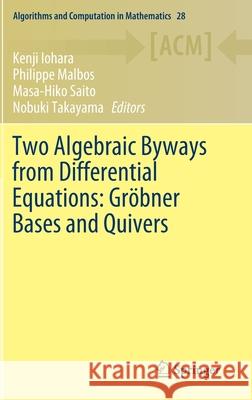Two Algebraic Byways from Differential Equations: Gröbner Bases and Quivers » książka
topmenu
Two Algebraic Byways from Differential Equations: Gröbner Bases and Quivers
ISBN-13: 9783030264536 / Angielski / Twarda / 2020 / 371 str.
Two Algebraic Byways from Differential Equations: Gröbner Bases and Quivers
ISBN-13: 9783030264536 / Angielski / Twarda / 2020 / 371 str.
cena 441,75
(netto: 420,71 VAT: 5%)
Najniższa cena z 30 dni: 424,07
(netto: 420,71 VAT: 5%)
Najniższa cena z 30 dni: 424,07
Termin realizacji zamówienia:
ok. 22 dni roboczych.
ok. 22 dni roboczych.
Darmowa dostawa!
Kategorie:
Kategorie BISAC:
Wydawca:
Springer
Seria wydawnicza:
Język:
Angielski
ISBN-13:
9783030264536
Rok wydania:
2020
Wydanie:
2020
Numer serii:
000174532
Ilość stron:
371
Waga:
0.71 kg
Wymiary:
23.39 x 15.6 x 2.24
Oprawa:
Twarda
Wolumenów:
01
Dodatkowe informacje:
Wydanie ilustrowane











